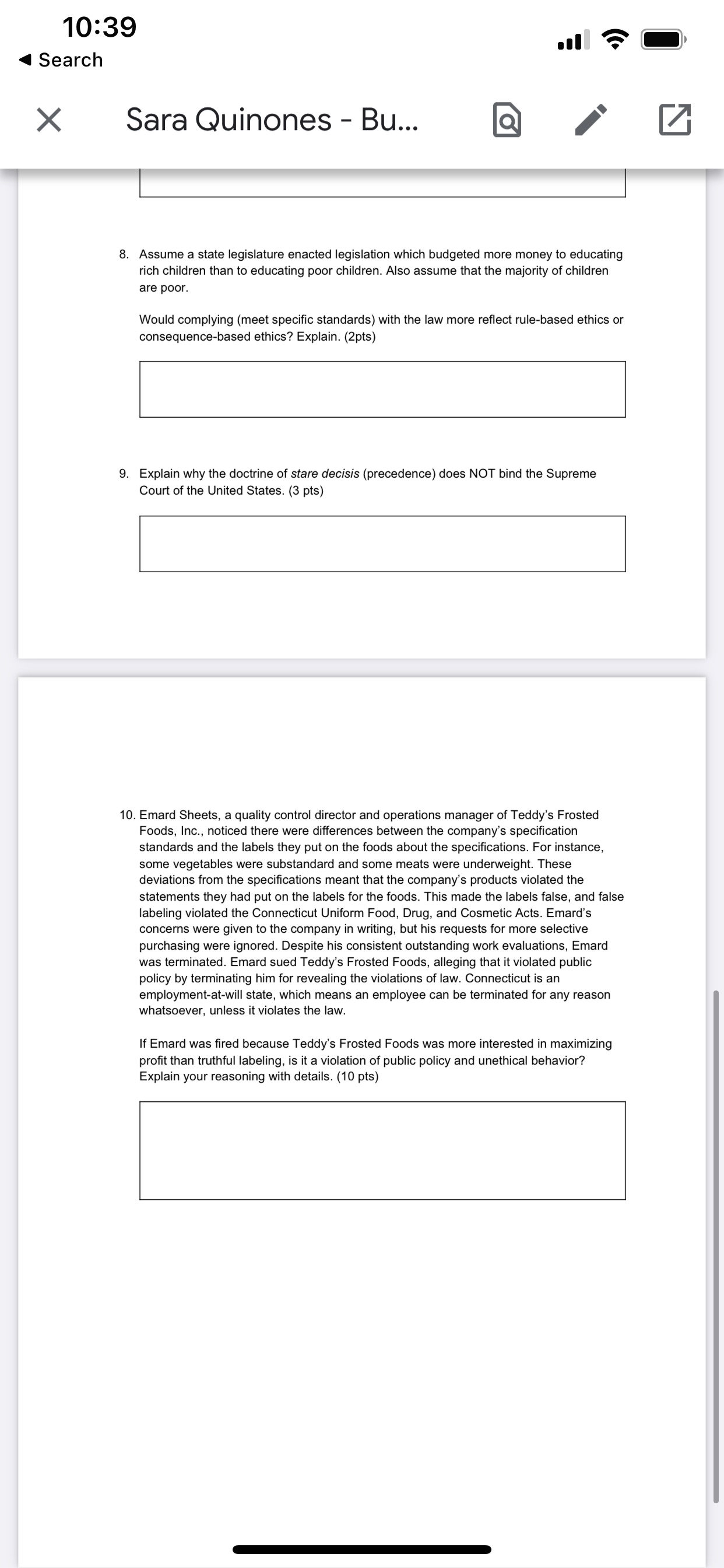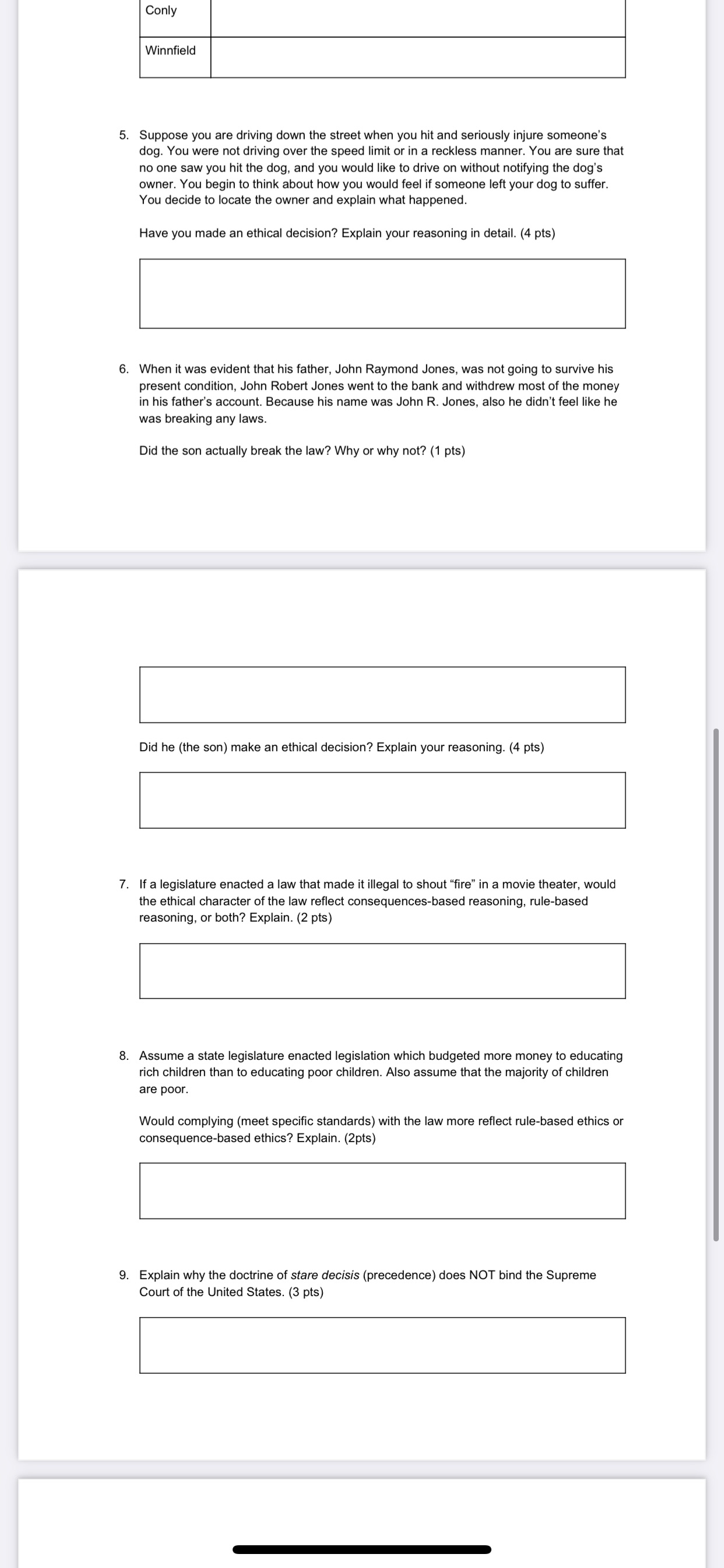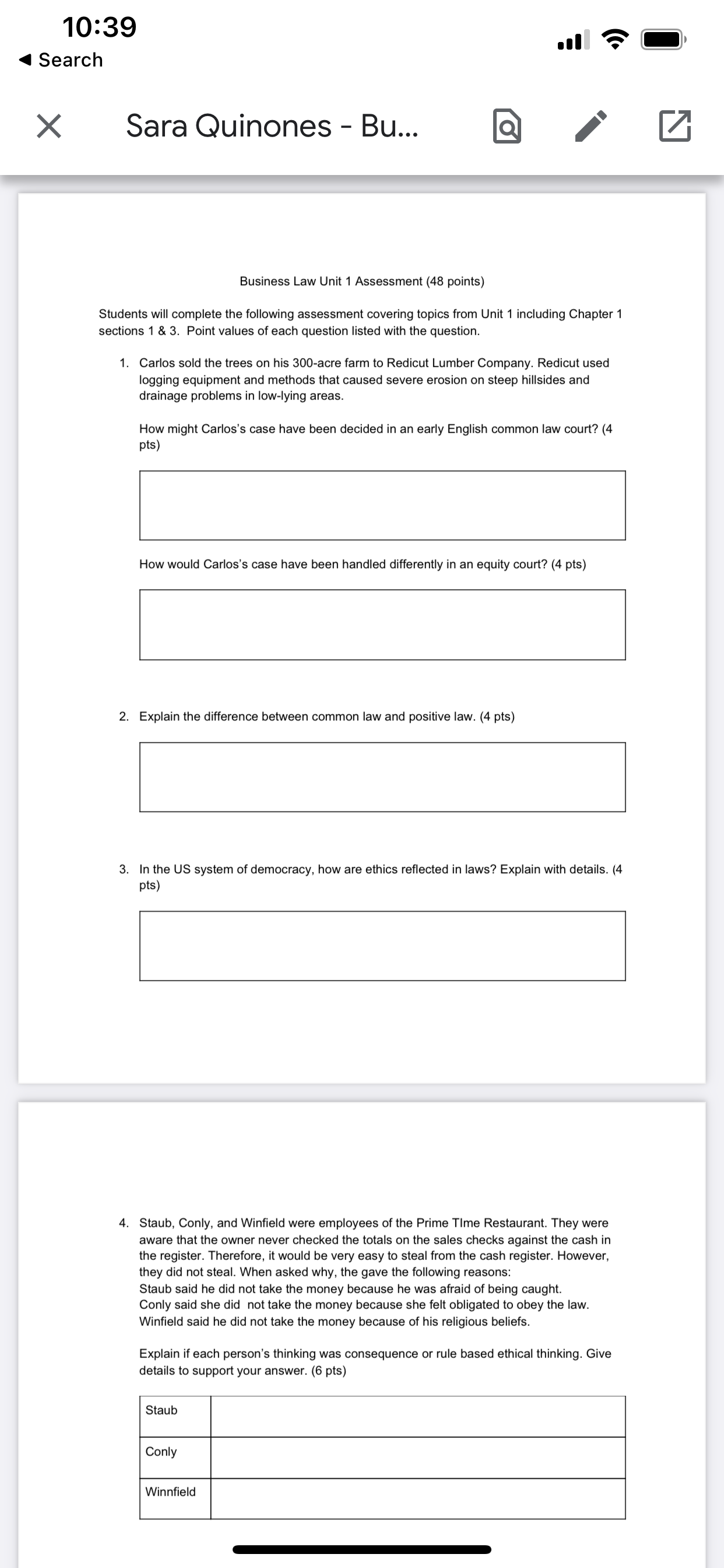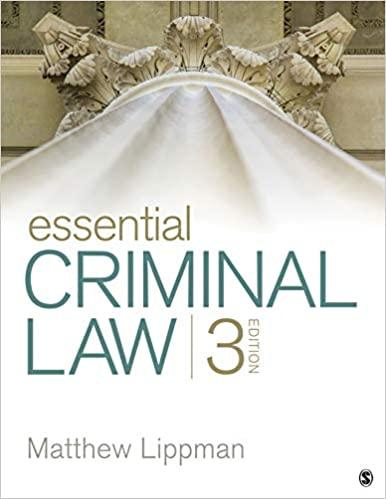could you help me with these
10:39 , A [E], 4 Search X Sara Quinones Bu... IQ /' Z TT' 8. Assume a state legislature enacted legislation which budgeted more money to educating rich children than to educating poor children. Also assume that the majority of children are poor. Would complying (meet specic standards) with the law more reect rule-based ethics or consequence-based ethics? Explain. (2pts) 9. Explain why the doctrine of stare decisis (precedence) does NOT bind the Supreme Court of the United States. (3 pts) 10. Emard Sheets, a quality control director and operations manager of Teddy's Frosted Foods, Inc., noticed there were differences between the company's specication standards and the labels they put on the foods about the specications. For instance, some vegetables were substandard and some meats were undeniveight. These deviations from the specications meant that the company's products violated the statements they had put on the labels for the foods. This made the labels false. and false labeling violated the Connecticut Uniform Food, Drug, and Cosmetic Acts. Emard's concerns were given to the company in writing, but his requests for more selective purchasing were ignored. Despite his consistent outstanding work evaluations, Emard was terminated. Emard sued Teddy's Frosted Foods, alleging that it violated public policy by terminating him for revealing the violations of law. Connecticut is an employment-at-will state. which means an employee can be terminated for any reason whatsoever, unless it violates the law. If Emard was red because Teddy's Frosted Foods was more interested in maximizing prot than truthful labeling, is it a violation of public policy and unethical behavior? Explain your reasoning with details. (10 pts) Conly 5. Suppose you are driving down the street when you hit and seriously injure someone's dog. You were not driving over the speed limit or in a reckless manner. You are sure that no one saw you hit the dog, and you would like to drive on without notifying the dog's owner. You begin to think about how you would feel if someone left your dog to suffer. You decide to locate the owner and explain what happened. Have you made an ethical decision? Explain your reasoning in detail. (4 pts) 6. When it was evident that his father, John Raymond Jones, was not going to survive his present condition, John Robert Jones went to the bank and withdrew most of the money in his father's account. Because his name was John R. Jones, also he didn't feel like he was breaking any laws. Did the son actually break the law? Why or why not? (1 pts) Did he (the son) make an ethical decision? Explain your reasoning (4 pts) 7. If a legislature enacted a law that made it illegal to shout \"re" in a movie theater, would the ethical character of the law reect consequences-based reasoning. rule-based reasoning, or both? Explain. (2 pts) 8. Assume a state legislature enacted legislation which budgeted more money to educating rich children than to educating poor children Also assume that the majority of children are poor. Would complying (meet specic standards) with the law more reect rule-based ethics or consequence-based ethics? Explain. (2pts) 9. Explain why the doctrine of stare decisis (precedence) does NOT bind the Supreme Court of the United States. (3 pts) 10:39 A Q, 4 Search X Sara Quinones Bu... IQ /' Z Business Law Unit 1 Assessment (48 points) Students will complete the following assessment covering topics from Unit 1 including Chapter 1 sections 1 8. 3. Point values of each question listed with the question 1. Carlos sold the trees on his SOD-acre farm to Redicut Lumber Company. Redicut used logging equipment and methods that caused severe erosion on steep hillsides and drainage problems in low-lying areas. How might Carlos's case have been decided in an early English common law court? (4 MS) How would Carlos's case have been handled differently in an equity court? (4 pts) 2. Explain the difference between common law and positive law. (4 pts) 3. In the US system of democracy. how are ethics reected in laws? Explain with details. (4 MS) 4. Staub, Conly, and Wineld were employees of the Prime Time Restaurant. They were aware that the owner never checked the totals on the sales checks against the cash in the register. Therefore. it would be very easy to steal from the cash register. However, they did not steal. When asked why. the gave the following reasons: Staub said he did not take the money because he was afraid of being caught. Conly said she did not take the money because she felt obligated to obey the law. Wineld said he did not take the money because of his religious beliefs. Explain if each person's thinking was oonsequenoe or rule based ethical thinking. Give details to support your answer. (6 pts) Staub Conly Winnfield









